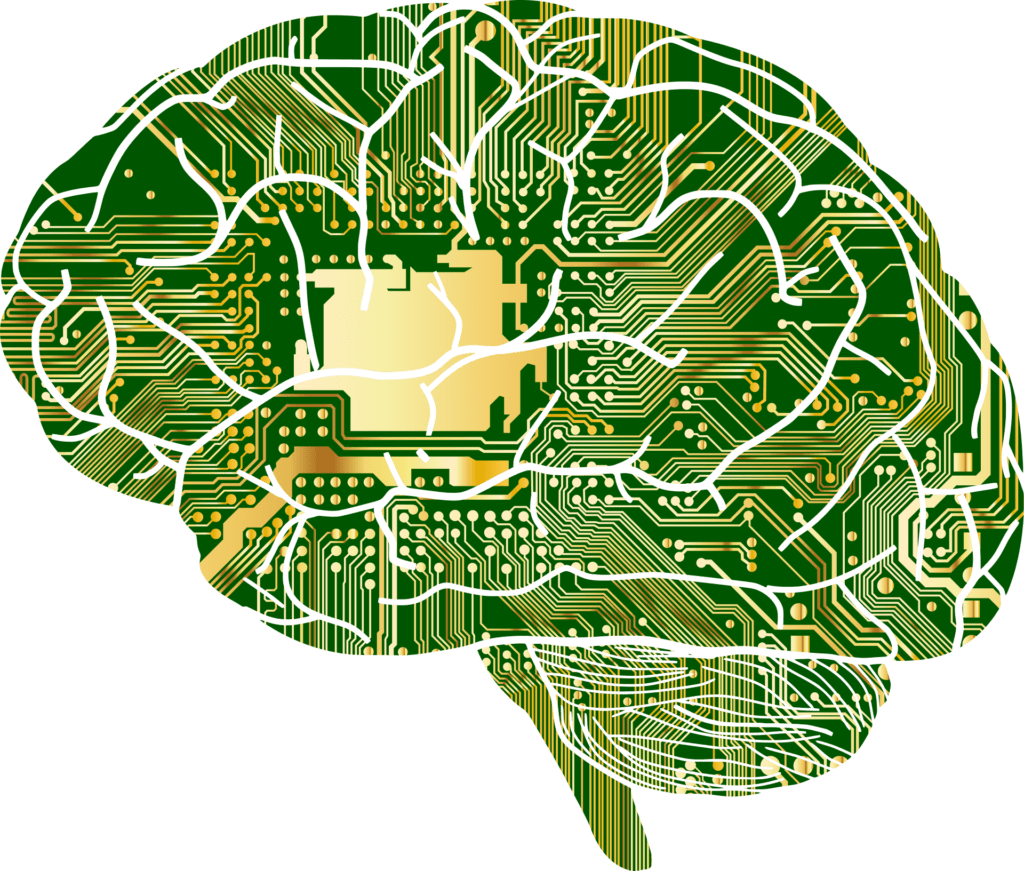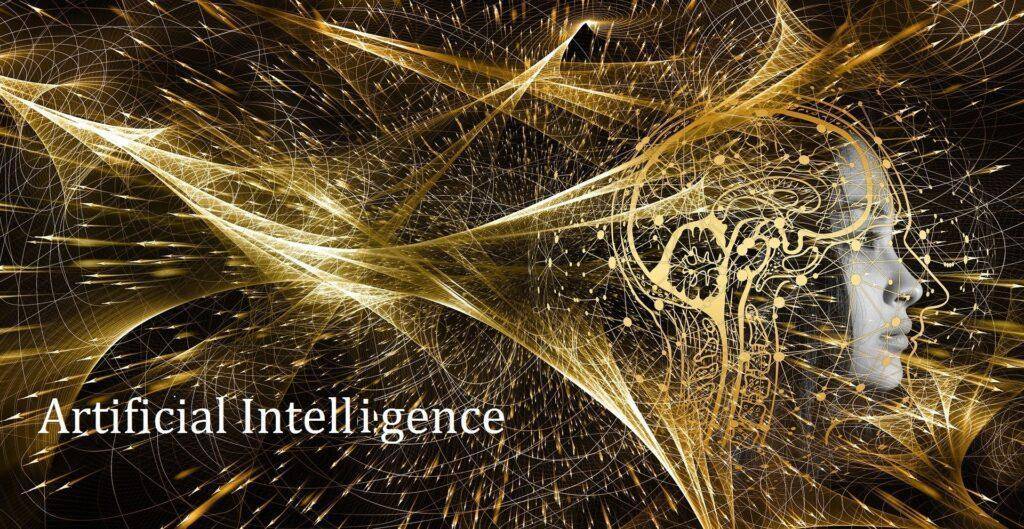Artificial Intelligence (AI) is no longer a concept only seen in science fiction movies. Rather, it is a reality now. It is bringing change in every walk of our life.
AI develops computer systems that can perform tasks that typically require human intelligence, such as visual perception, speech recognition, decision-making, and language translation. In this article, we will explore how AI is transforming various industries and changing our lives.
Imagine a world where machines can think, learn, and make decisions like humans. A world where cars can drive themselves, virtual assistants can manage our schedules, and robots can perform complex surgeries. This world is not far away, thanks to the rapid advancement of AI technology.

Background of Artificial intelligence
AI is developing since the early1950s. Today, there is use of it in a variety of platforms like smartphones and social media. AI algorithms are used to recommend products, personalize content, and detect fraudulent activities.
Artificial intelligence (AI) is a reproduction of intelligence similar to humans with the help of machines like computers. So it is the science of producing intelligent machines that can perform different tasks. Every person, animal, and artificial machine has different intelligence. They perform their tasks according to their intelligence. After World War II, many researchers started to construct intelligence machines. In 1947, Alan Turing, an English mathematician was the first who started working on it. His great work was that he started on AI by paying more attention to computer programming rather than making machines.
Artificial Intelligence approach
It is an interdisciplinary science that has several approaches. The advances in machine learning have led to a paradigm shift in almost all areas of the technology industry.
With AI, there is the ability of a digital computer or a computer-controlled robot to perform tasks that are usually associated with intelligent beings. This term is often used for the project to develop systems that contain intellectual processes.
These characterize people, such as arguing, discovering meaning, and generalizing from learning from past experiences. Since the development of the digital computer in the 1940s, it has been shown that computers can be programmed to perform very complex tasks.
What is Intelligence

Everything is attributed to intelligence. Psychologists generally characterize human intelligence not only by a trait but by combining many different skills. The investigator working on AI has largely paid attention to the following components of intelligence:
- learning, perception,
- thinking,
- problem-solving, and
- Language use.
Types of Artificial Intelligence
There are three types of AI:
- Narrow or Weak AI: This type of AI is designed to perform a specific task, such as playing chess or recognizing faces. It cannot perform any other task outside its specific domain.
- General AI: This type of AI is designed to perform any intellectual task that a human can do. It can reason, plan, and learn across different domains.
- Super AI: This type of AI is an advanced form of general AI that can outperform humans in virtually any task. This type of AI is still purely hypothetical.
Applications of Artificial Intelligence
1-Healthcare:
AI is revolutionizing the healthcare industry, from patient diagnosis to drug discovery. AI-powered medical imaging systems can analyze medical images to detect and diagnose diseases, while AI algorithms can be used to predict patient outcomes and optimize treatment plans. AI algorithms can also analyze vast amounts of patient data to identify patterns and predict potential health issues before they occur.
2-Customer Service:
AI-powered chatbots are being used in customer service to provide instant and personalized responses to customers.
3-Finance:
AI is transforming the financial industry, with applications ranging from fraud detection to personalized financial advice. AI-powered chatbots can provide 24/7 customer support, while AI algorithms can be used to analyze financial data to identify trends and make investment decisions.
AI-powered algorithms can analyze financial data and make investment decisions with a level of accuracy that was previously impossible. This technology is also being used to detect fraudulent activities and improve risk management.
AI is being used in finance to detect fraud, make trading decisions, and automate routine tasks.
4-Transportation:
Self-driving cars and trucks are some of the most significant applications of AI in the transportation industry. AI-powered traffic management systems can optimize traffic flow, while AI algorithms can be used to predict demand for transportation services.
5-Manufacturing:
AI is being used in manufacturing to optimize production processes and reduce waste.
6-Education:
AI is being used in education to personalize learning experiences and provide real-time feedback to students. The education sector is also benefiting from AI technology. AI-powered chatbots and virtual assistants can help students with their homework and provide personalized learning experiences. AI algorithms can also analyze student data to identify areas where they need more support and recommend tailored learning resources.
7-Gaming:
AI is being used in gaming to create more realistic and challenging opponents for players.
8-Agriculture:
AI is being used in agriculture to optimize crop yields and reduce water USA
9-Entertainment:
AI is also transforming the entertainment industry, with applications ranging from personalized content recommendations to predictive modeling for film and television

Challenges of Artificial Intelligence
While Artificial Intelligence has the potential to revolutionize many industries, several challenges must be addressed:
- Bias: AI systems can perpetuate bias and discrimination if they are trained on biased data or designed without considering diverse perspectives.
- Ethics: AI systems can be used to create autonomous weapons or to monitor and control individuals, raising ethical concerns.
- Privacy: AI systems can collect and analyze vast amounts of personal data, raising concerns about privacy and security.
- Unemployment: AI systems can automate many jobs, leading to job losses and economic disruption.
- Regulation: AI is a rapidly evolving field, and regulations are struggling to keep up with its rapid development, raising concerns about accountability and transparency.
The Future of AI in Education
The future of Artificial Intelligence is exciting, and it is predicted to have a significant impact on society. Some possible developments in the field include:
- Advancements in General AI: Researchers are working to develop General AI that can think and learn like humans in multiple domains.
- Increased Automation: AI is expected to automate many jobs, leading to significant changes in the labor market and the economy.
- Improved Healthcare: AI is expected to revolutionize healthcare by improving patient outcomes and developing new treatments.
- Enhanced Personalization: AI is expected to provide more personalized products and services based on individual preferences and behavior.
- Increased Efficiency: AI is expected to optimize many industries, leading to increased efficiency and reduced costs.
- Advancements in Robotics: AI-powered robots are expected to become more advanced and widespread, leading to new applications in manufacturing, healthcare, and other industries.
- Increased Safety: AI is expected to improve safety in many industries, such as transportation and manufacturing, by reducing human error and improving decision-making.
Pros and Cons of Artificial Intelligence
Like any technology, AI has its pros and cons. Here are some of the most significant pros and cons of AI:
Pros:
- Efficiency: AI can automate routine and repetitive tasks, allowing humans to focus on more complex and creative work. This can lead to increased productivity and reduced costs.
- Personalization: AI can analyze vast amounts of data to provide personalized recommendations and services based on individual preferences and behavior.
- Accuracy: AI can process and analyze data at a faster rate and with greater accuracy than humans, reducing errors and improving decision-making.
- Improved Healthcare: AI can improve patient outcomes by diagnosing diseases, developing new treatments, and providing personalized care.
- Safety: AI can improve safety in many industries, such as transportation and manufacturing, by reducing human error and improving decision-making.
- Cost Savings: AI can help businesses reduce costs by automating repetitive tasks and improving decision-making.
Cons:
- Bias: AI systems can perpetuate bias and discrimination if they are trained on biased data or designed without considering diverse perspectives.
- Ethics: AI systems can be used to create autonomous weapons or to monitor and control individuals, raising ethical concerns.
- Privacy: AI systems can collect and analyze vast amounts of personal data, raising concerns about privacy and security.
- Unemployment: AI systems can automate many jobs, leading to job losses and economic disruption.
Regulation:
AI is a rapidly evolving field, and regulations are struggling to keep up with its rapid development, raising concerns about accountability and transparency
FAQs about Artificial Intelligence
Q: Is Artificial Intelligence a threat to humanity?
A: There is no evidence to suggest that AI is a threat to humanity. However, there are concerns about the misuse of AI and the potential for AI systems to cause harm.
Q: Can Artificial Intelligence be creative?
A: AI can be programmed to generate new ideas and creative outputs. However, some argue that true creativity requires human intuition and emotions.
Q: How is Artificial Intelligence changing the job market?
A: AI is automating many repetitive and routine tasks, leading to job losses in certain industries. However, AI is also creating new jobs in fields such as data science and AI development.
Q: How can we ensure the ethical use of Artificial Intelligence?
A: Ethical use of AI requires a combination of regulation, transparency, and accountability.
Q: What are the benefits of Artificial Intelligence?
A: The benefits of AI include increased efficiency, improved accuracy, personalized services, improved decision-making, and improved safety.
Q: What are the risks of Artificial Intelligence?
A: The risks of AI include bias and discrimination, ethical concerns, privacy and security concerns, unemployment, and the need for regulation and oversight.
Q: Can Artificial Intelligence replace human workers?
A: AI has the potential to automate many jobs, leading to job losses and economic disruption. However, it is also expected to create new jobs and opportunities for humans.
Q: Is Artificial Intelligence ethical?
A: The development and use of AI raise ethical concerns, such as the potential for autonomous weapons, biased decision-making, and privacy violations.
Q: Will Artificial Intelligence become smarter than humans?
A: There is ongoing debate about whether AI will become smarter than humans. Some experts predict that AI will continue to improve and surpass human intelligence in some areas, while others believe that AI will always be limited by its programming and lack of human-like consciousness.
Q: How can we ensure that Artificial Intelligence is developed and used responsibly?
A: To ensure that AI is developed and used responsibly, it is important for researchers, policymakers, and the public to work together to establish ethical guidelines and regulations. This includes considering diverse perspectives, ensuring transparency and accountability, and addressing concerns around privacy, bias, and discrimination.
Conclusion
The topic of artificial intelligence is exciting and developing quickly. It can transform industries and enhance our quality of life. However, some obstacles and issues need to be resolved. AI has a promising future and is anticipated to have a big impact on society in the years to come. To ensure that AI is created ethically and responsibly and that its advantages are widely distributed, researchers, policymakers, and the general public must collaborate
Please also read this article
====================================================================
here you can find that helped thousands of women to improve their relationships.
This can help women all over the world get over the pain and heartache of a break-up and ultimately helps them get back together with their ex-boyfriend or husband.
——————————————————————————————————————–
For a better experience of web hosting and domain, please click here










